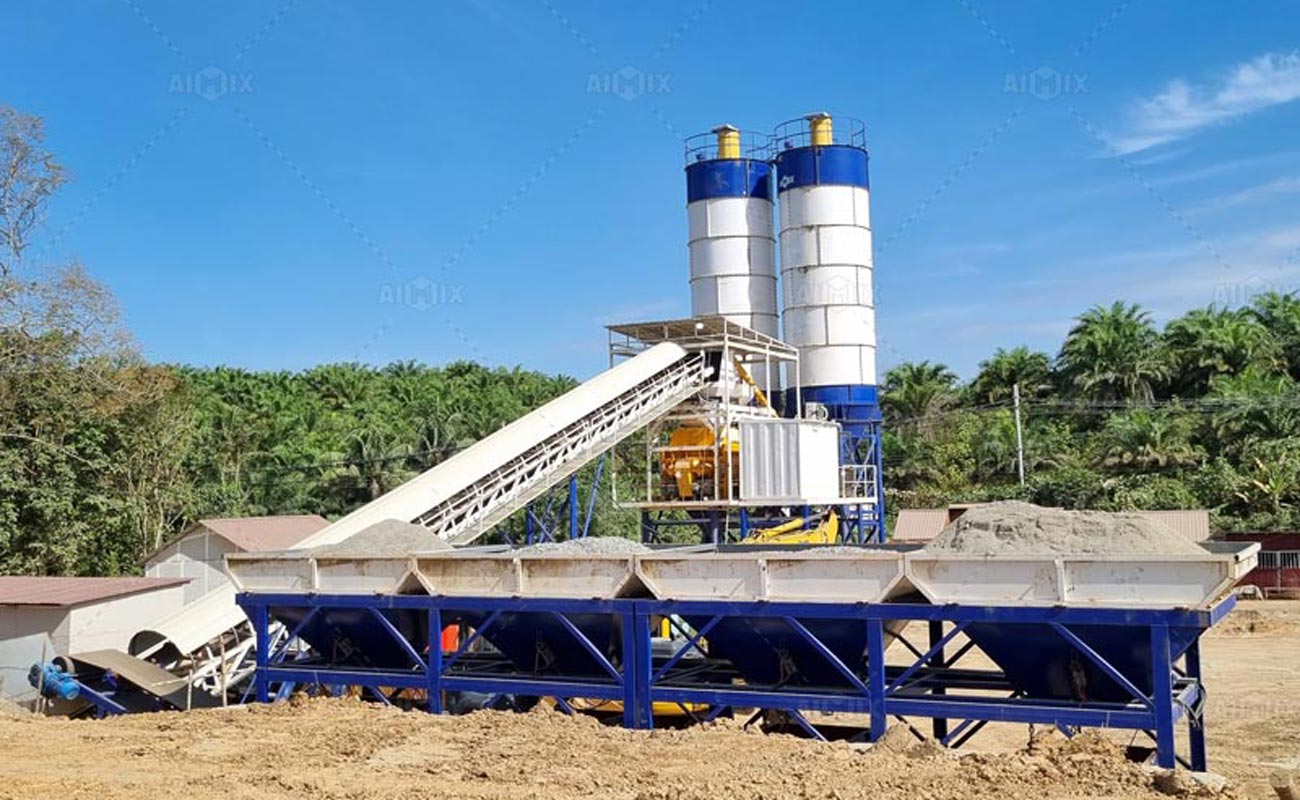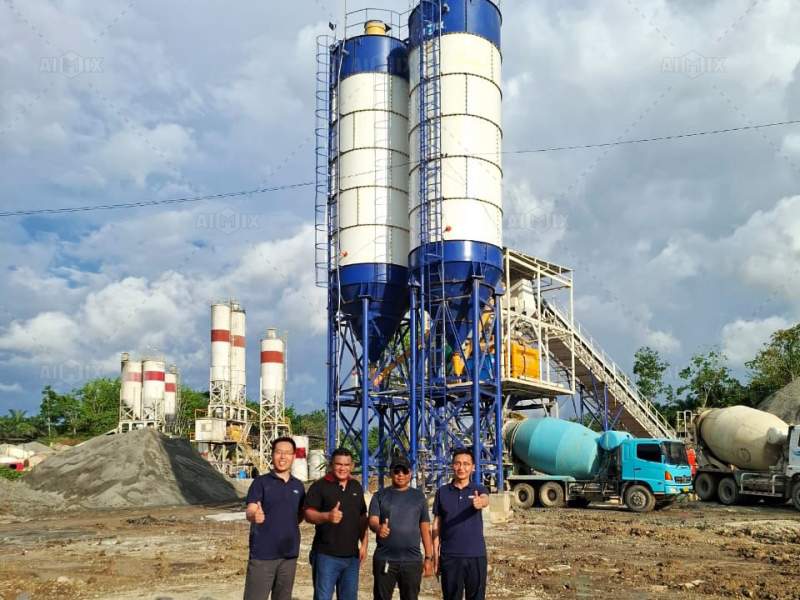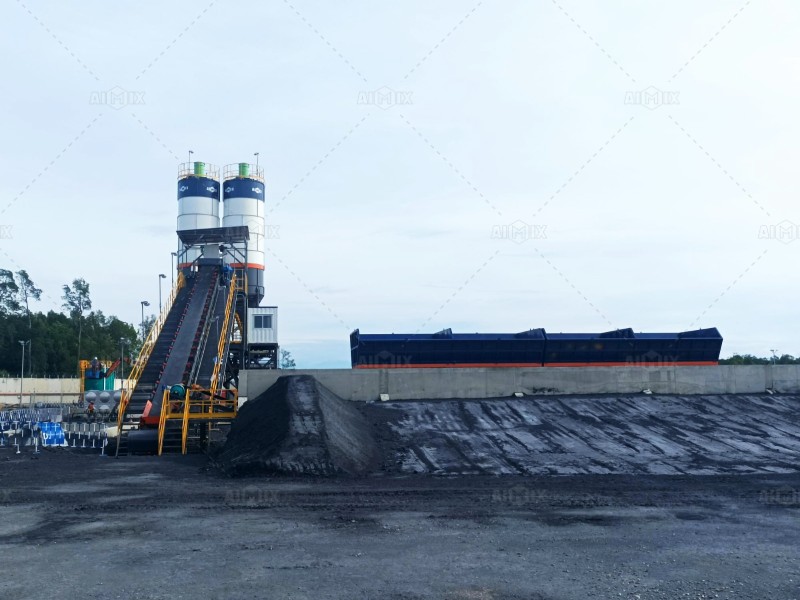Concrete Mixer Plant for Sale with Advanced Control Systems: What to Look For
In today's fast-paced construction environment, efficiency, precision, and automation are vital to maintaining a competitive edge. If you're exploring a concrete mixer plant for sale, it's essential to evaluate not just the mechanical components, but also the control system that drives the entire operation. The right concrete batching plant machine with an advanced control system can significantly boost productivity, reduce material wastage, and ensure high-quality concrete output.
This article will guide you through the key features to look for in control systems when investing in a concrete mixer plant for sale and how these features align with modern industry demands.

Why Control Systems Matter in a Concrete Mixer Plant
The control system is essentially the "brain" of a concrete batching plant machine. It governs every stage of the concrete production process — from weighing raw materials to mixing and discharging the final product. With automation and digital technologies now at the forefront of industrial transformation, having a smart control panel ensures:
-
Consistency in concrete mix quality
-
Faster batch cycles and reduced downtime
-
Real-time monitoring and troubleshooting
-
Better data management for reporting and planning
If you're considering a concrete mixer plant for sale, a modern control system is no longer a luxury — it's a necessity.
1. Types of Control Systems in Concrete Mixer Plants
When browsing for a concrete mixer plant for sale, you'll encounter different types of control systems, typically categorized as:
-
Manual Control: Basic and inexpensive, but heavily reliant on operator skill; not ideal for large-scale or high-precision operations.
-
Semi-Automatic Control: Offers partial automation; still requires manual input for some processes.
-
Fully Automatic Control: The most advanced option, allowing automated weighing, batching, mixing, and real-time monitoring.
For companies seeking scalability, accuracy, and compliance with quality standards, a fully automatic concrete batching plant machine is the optimal choice.
2. Key Features of Advanced Control Systems
Here are essential features to look for in a control system when evaluating a concrete mixer plant for sale:
a. Programmable Logic Controller (PLC)
A PLC is a high-speed digital computer used for automation. It ensures precision in timing, mixing sequences, and quality control. Many top-tier plants use brands like Siemens or Mitsubishi PLCs.
b. Human-Machine Interface (HMI)
The HMI enables operators to interact with the control system through a touchscreen display. An intuitive interface simplifies operation, troubleshooting, and training.
c. Automated Weighing and Dosing
Look for load-cell-based automated weighing systems for aggregates, cement, water, and additives. This ensures consistent batching and reduces material loss.
d. Remote Access and Monitoring
Modern control systems often include remote connectivity. Managers can monitor plant status, receive alerts, and troubleshoot issues from a distance using mobile devices or computers.
e. Data Logging and Reporting
Advanced control systems log every batch's data, including mix proportions, production volume, and error logs. This is crucial for quality assurance and project audits.
f. Recipe Management
Ability to store and switch between multiple concrete mix recipes with a click ensures flexibility for different project needs (e.g., precast, ready-mix, or high-strength concrete).

3. Integration with Other Systems
When investing in a concrete mixer plant for sale, make sure the control system integrates easily with other plant equipment such as:
-
Cement silos
-
Aggregate batching systems
-
Concrete truck loaders
-
Moisture sensors
-
Additive dosing pumps
This seamless integration ensures the entire concrete batching plant machine functions like a single cohesive unit, improving operational flow and reducing risk of errors.
4. Advantages of Smart Control Systems
Companies that opt for concrete mixer plants with advanced control systems gain several benefits:
-
Higher Accuracy: Automated dosing reduces the margin of error to as low as ±1%.
-
Lower Labor Costs: Fewer operators are needed to run a fully automated plant.
-
Improved Quality Control: Real-time data ensures that mix designs meet exact specifications every time.
-
Reduced Downtime: Early detection of errors or equipment malfunctions prevents costly stoppages.
-
Energy Efficiency: Intelligent batching minimizes energy consumption per cubic meter of concrete produced.
5. Choosing the Right Supplier
When you're in the market for a concrete mixer plant for sale, choose a supplier who:
-
Offers comprehensive control systems with global brand components
-
Provides installation, training, and after-sales support
-
Has experience in customizing control systems for your specific production needs
-
Can integrate the control unit with various types of concrete batching plant machines, whether stationary, mobile, or compact
Reliable manufacturers such as Aimix, ELKON, MEKA, and Liebherr are known for offering high-performance control solutions alongside durable mechanical equipment.

Conclusion
As demand for quality concrete continues to rise across infrastructure, commercial, and residential sectors, upgrading to an advanced concrete mixer plant for sale with a smart control system is a strategic investment. Whether you are scaling up your operations or replacing outdated equipment, the integration of automation and digital control can make a significant difference in productivity, cost-efficiency, and concrete quality.
When evaluating your options, remember that the concrete batching plant machine is only as efficient as the control system guiding it. Prioritize technology, reliability, and long-term support — and you'll be well on your way to building a future-proof concrete production operation.